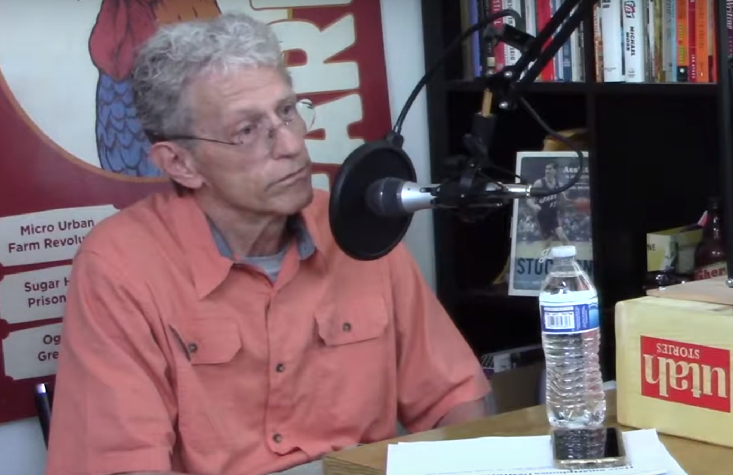About thirty years ago SSRIs came on the market and they were immediately branded as being a “miracle cure for depression.” It took a few years before they became mainstream but by the early nineties, many of the most popular TV programs had main characters who we’re using them. Tony Soprano was on Paxil to treat his anger and anxiety attacks.
Utah has been no stranger to depression. In fact we have the highest per-capita usage of antidepressants in the nation. The question as to why Utahns have realized such a wide-spread adoption of antidepressants isn’t clear. Whether it’s the patients influenced by the effective ad campaigns full of happy, smiling people, or whether doctors are prescribing more here than anywhere else is uncertain. But part of the reason must be that Utahans love quick fixes, and “miracle cures”. (see the booming essential oils business for myriad examples). But now ketamine feels like Paxil felt in the early nineties. It is today the “it” drug.
As a natural skeptic of any mind-altering drugs, I recently read Michael Pollan’s new Best selling book, How to Change Your Mind. Pollan chronicles his relationship, or lack-thereof with psychedelics. Pollan never did many psychedelics in the sixties, and he realized prior to writing the book that perhaps he missed out on a personal spiritual awakening by not using them.
Like his other best selling books, Pollan takes the reader on his journey: tripping on acid, DMT and mushrooms in various forms and settings. It’s interesting how DMT, mushrooms and LSD have gained widespread use in coastal cities. His experiments take place in San Francisco and Washington, where he takes a very analytical and thoughtful approach to his “studies” (ala Aldous Huxley’s The Doors of Perception). My takeaway was that while certainly LSD and DMT deserve to gain more recognition and further studies for the work they can perform on people suffering from depression or end-of-life care. And the book reinforced my long-time belief that psychology is really still a science in infancy. Overall, scientists don’t know much about psychopharmacology, so doctors should stop pretending.
Ketamine is something of a tranquilizer/hallucinogen. It has been traditionally used in anesthesia. It was only in March 2019 when the FDA approved ketamine as an entirely new treatment for depression. “This is a game changer,” says John Krystal, MD, and chief psychiatrist at Yale Medicine and one of the chief pioneers of ketamine research in the country.
Unlike SSRIs, which inhibit the re-uptake of serotonin, which only act to buffer sadness by allowing more serotonin to remain in the brain, ketamine triggers reactions in the cortex which enable brain connections to regrow. It’s the body’s reaction to ketamine that causes the effect.
Dr. Robert Hiemstra is a Salt Lake City doctor who has recently opened a ketamine clinic. He visited the Utah Stories Show to explain how ketamine works in the brain and how and why he considers it the best treatment available for depression.
Hiemstra says that even Nature Magazine, which is the most respected science journal in the country, finds that ketamine is one of the most hopeful treatments for depression to come along in decades.
In our two-part show we talk to both Dr. Hiemstra and a recent ketamine patient Aimee Lewis about what the intravenous regular treatments of ketamine have done for her serious bouts with depression. Lewis details how the drug has made the world and experiences become more vivid and unlike living in the “dark cloud of depression”, she can appreciate the simple experiences and vividness of life again.
My primary conclusion is that while ketamine appears to be a viable alternative to antidepressants, there is no “miracle cure” for depression. I find it interesting that depression isn’t a thing in third-world countries. In the West, we don’t want to fully experience our own grief and pain so we have come up with the diagnosis of depression to find a “cure”, which Big-Pharma is only too willing to provide.
Certainly, depression is real and nobody should go untreated for chronic depression. But psychotherapy, diet, exercise, mountain hiking, grief counseling even extreme cold water baths or plunges into freezing cold lakes; and excessive amounts of pettings or lickings by cats or dogs—are all better treatments to attempt first before using any form of psychotropic drugs or ketamine. (Just my two cents).
Still, it’s well worth checking out this episode of the Utah Stories show, it was a fascinating discussion and I’m grateful for Dr. Hiemstra and especially Aimee Lewis for having the courage to come on to discuss her depression.
Listen the podcast below:
Interview with Dr. Hiemstra
Interview with a recent ketamine patient Aimee Lewis:
FOR MORE UTAH STORIES PODCASTS GO HERE.

![]()
![]()






